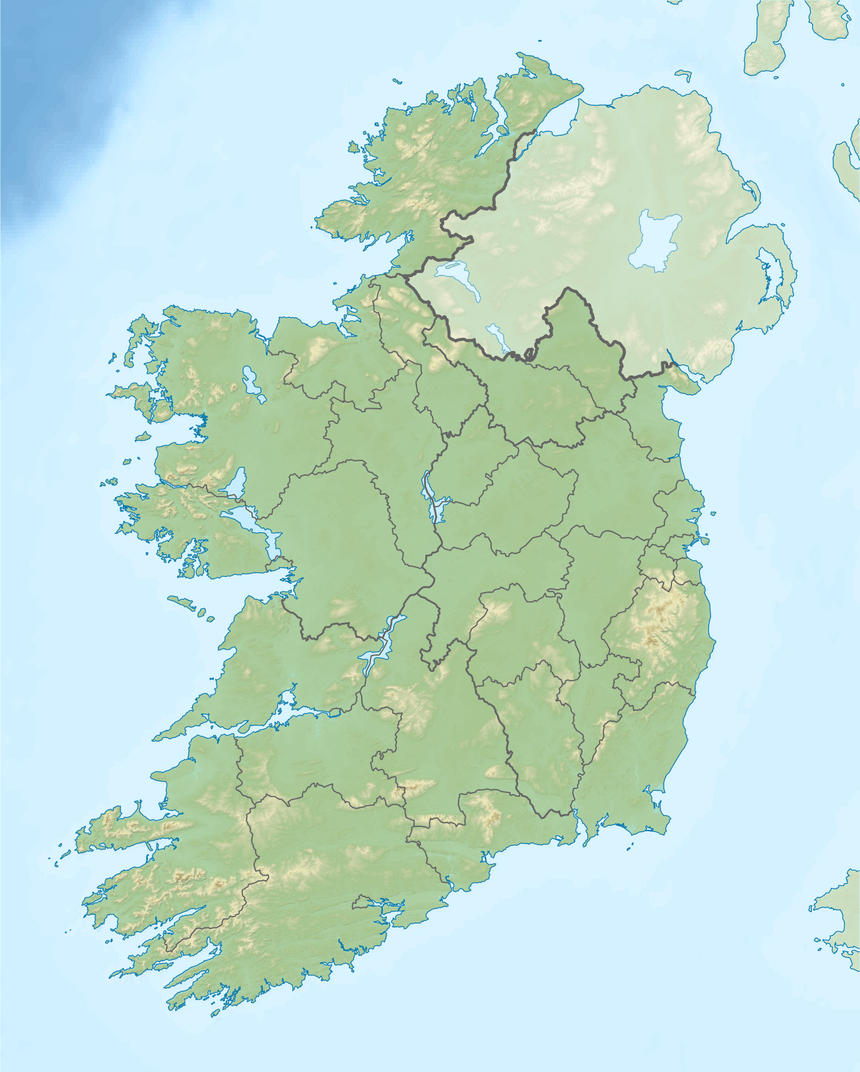Battle of Julianstown
The Battle of Julianstown was fought on 29 November 1641 at Julianstown in Ireland during the Irish Rebellion of 1641 when an English Royalist relief force was soundly defeated by Irish rebels.[4]
| Battle of Julianstown | |||||||
|---|---|---|---|---|---|---|---|
| Part of the Irish Confederate Wars | |||||||
| |||||||
| Belligerents | |||||||
|
|
| ||||||
| Commanders and leaders | |||||||
| Sir Patrick Wemyss |
Philip O'Reilly Miles O'Reilly | ||||||
| Strength | |||||||
| 650[1] | 3,000[2] | ||||||
| Casualties and losses | |||||||
| 500 killed or captured[3] | Unknown | ||||||

Background
After the Irish Rebellion started, the rebels first attempted to move into Ulster and capture Belfast. When they met stiff Protestant resistance in Ulster, the rebels turned their focus southward with the goal of taking Dublin. Enroute to attack Dublin, the rebels came upon the town of Drogheda and began the siege of the garrison. Approximately one week after the rebels had encircled Drogheda, the English authorities in Dublin put together a relief force and sent them to reinforce the Royalist strongpoint. Enroute to Drogheda, the English force was ambushed and routed by the rebels in Julianstown.[2][5]
The battle
The English relief force was hastily put together and largely untrained. Many of the soldiers in the relief force were emaciated and sick refugees from the northern counties who were pressed into service. The detachment was commanded by Sir Patrick Wemyss and was composed of 600 foot and 50 horse. The rebel forces were led by Philip O'Reilly and Miles O'Reilly, both Irish leaders from County Cavan. Their force of 3,000 men including 300 horse had experienced commanders and appears to have been assigned to the south of Drogheda to complete the encirclement of the garrison.[6][7]
On the morning of the battle, the rebels became aware of the approach of the Royalists and prepared an ambush. As the rebels sprung their trap, the English commander did not immediately order his men to attack and fire upon the enemy. By mistake Wemyss ordered his men to "countermarch" which caused them to move backwards as if they were retreating. The rebels took full advantage of the situation and immediately charged the Royalists. The rebel attack caused panic and confusion among the English and prevented them from coordinating an effective counter-attack. Many of the Royalists threw down their weapons and attempted to escape. The Royalist horse fled the field. In the end, the rebels killed almost all of the Royalist foot soldiers.[3][8]
Aftermath
The victory had several short term benefits for the rebels. From the manner in which they routed the Royalists, the rebel forces gained respect as a military force. It boosted rebel morale and help to spread the revolt throughout Ireland. For the commander of the Irish Royal Army, the Earl of Ormond, the battle showed the determination of the rebels and the degree of support for their cause. Ultimately, the Battle of Julianstown as a small part of the Irish Rebellion indirectly led to the English Civil War and Confederate Ireland.[3]
See also
References
- Nicholas, p. 21.
- Perceval-Maxwell, p. 222.
- Perceval-Maxwell, p. 223.
- 1641 Depositions Timeline.
- Plant.
- Perceval-Maxwell, pp. 219-222.
- Hamilton, p. 170.
- Nicholas, p. 22.
Sources
- "1641 Depositions Timeline". Trinity College Dublin. Trinity College Dublin. Retrieved 10 May 2020.
- Hamilton, Lord Ernes (1920). The Irish Rebellion of 1641: With a History of the Events which Led Up to and Succeeded it. J. Murray.
- Nicholas, Bernard (1736) [25 May 1642], The whole proceedings of the siege of Drogheda: To which is added, A true account of the siege of London-Derry, S. Hyde
- Perceval-Maxwell, M. (1994). Outbreak of the Irish Rebellion of 1641. Montreal & Kingston: McGill-Queen's Press - MQUP. ISBN 0-7735-1157-1.
- Plant, David (27 September 2007). "The Confederate War: Campaigns of 1641-2". BCW Project. David Plant. Retrieved 12 May 2020.
Further reading
- Lenihan, Pádraig (2001). Confederate Catholics at War, 1641-49, Cork University Press, ISBN 1-85918-244-5.
- Clarke, Aidan (2000) The Old English in Ireland, 1625-1642 Four Courts Press, pp.176-177.